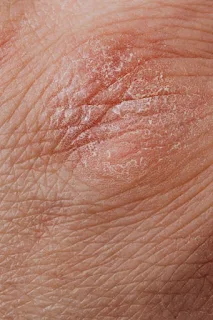Uric acid, causes ,medicine used and foods to avoid
Uric acid is formed when the body breaks down substances called purines. Purines are found in certain foods and are also produced naturally by our body. Uric acid normally dissolves in the blood and is excreted from the body through urine. However, if there is too much uric acid or the body cannot eliminate it efficiently, it can lead to health problems.Here are some main points to note while dealing with uric acid
1) Uric acid is produced when the body breaks down purines, which are found in red meat, organ meats, some types of seafood (such as anchovies and sardines) and some vegetables (such as asparagus and mushrooms).
2) Role in the body: In small amounts, uric acid has antioxidant properties and can help protect against damage caused by free radicals. However, high levels of uric acid can lead to health problems, such as gout or kidney stones.n>




) Gout: A type of arthritis characterized by sudden, severe pain attacks, joint swelling, redness, and tenderness, especially in the big toe.
B)Kidney stones: If levels are too high, crystallized uric acid can form kidney stones.
C) Kidney disease: High levels of uric acid can contribute to the development or worsening of kidney disease.
• Diagnosis: Uric acid levels can be measured through a blood test. Elevated levels may indicate conditions such as gout or kidney disease.
• Management: Lifestyle changes such as dietary changes (reducing purine-rich foods and alcohol), staying hydrated, and medications prescribed by a health care provider can help manage uric acid levels and related Can help reduce the risk of the condition.
It is important to note that although uric acid is a natural byproduct of metabolism, high levels can lead to serious health problems. Managing uric acid levels through diet, lifestyle changes and medical advice is vital to overall health and wellness.
However, it is very important to consult a healthcare practitioner for a proper diagnosis and prescription, as treatment depends on individual health factors and the severity of the condition.
When managing uric acid levels, it's helpful to focus on a balanced diet that can help lower levels or prevent gout flare-ups, which are often associated with high uric acid levels. Here are some general guidelines for eating:
• Low-fat dairy products: such as milk, yogurt, and cheese. These can help lower uric acid levels.
• Fruits: especially cherries and strawberries, as they have been shown to lower uric acid levels.
Vegetables: These are especially high in vitamin C, such as bell peppers, broccoli and tomatoes. Vitamin C helps reduce uric acid levels.
• Whole grains: such as whole wheat bread and brown rice.
• Nuts and seeds: In moderation, as they are high in healthy fats and can be part of a gout-friendly diet.
• Water: Staying hydrated is important to flush uric acid from the body.
On the other hand, it is advised to limit or avoid foods high in purines, such as red meat, organ meats (such as liver), and seafood (such as anchovies, sardines, and shellfish). Also, alcohol and sugary drinks should be consumed in moderation or avoided, as they can increase uric acid levels.
Always consult a healthcare provider or registered dietitian for personalized advice.
Medicines used to lower down the abnormal increase of uric acid are:
Allopurinol: This medicine reduces the production of uric acid in the body.
• Febuxostat: Like allopurinol, it also reduces uric acid production.
• Probenecid: Helps the kidneys eliminate uric acid from the body more effectively.
• Colchicine: Often prescribed to relieve gout pain during flare-ups.
Always consult a doctor for any treatment related to uric acid and related issues.

Comments
Post a Comment